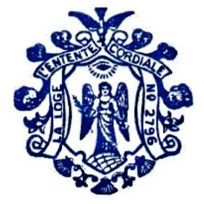Organ Concert
The third of the 2021 organ concerts on the splendid refurbished Willis organ in the Grand Temple of Freemasons' Hall, London, is to be given by international concert organist, Gordon Stewart.
Date: 10 November 2021 – 10 November 2021
Time: 6pm to 7pm
Location: 60 Great Queen Street, London , WC2B 5AZ
For fifteen years, Gordon was one of the regular conductors of BBC television's long-running series Songs of Praise, and he has been musical director for broadcasts on BBC Radio 2, 3 and 4. His programme from the Wanamaker Store in Philadelphia has been broadcast on BBC Radio 4 and in the United States.
Gordon was born in Dundee, Scotland, and studied in Manchester and Geneva. His teachers included Eric Chadwick, Gillian Weir and Lionel Rogg.
He was awarded a Performer’s Diploma with distinction in Manchester and a Premier Prix de Virtuosité in Geneva. For fifteen years he was a cathedral organist, first in Manchester then in Blackburn. In recent years he has been awarded honorary fellowships by the Royal College of Organists, the Guild of Church Musicians and the Royal School of Church Music, and an honorary doctorate by the University of Huddersfield.
Free practice sessions for RCO pupils
United Grand Lodge of England (UGLE) has close connections with the Royal College of Organists.
We offer free practice sessions for RCO pupils and other competent organists, both on this organ and on the Viscount digital organ in Temple 10, which is of similar size and configuration to the Willis and which was donated to the United Grand Lodge of England by the Grand Stewards' Lodge in 2017 to mark the Tercentenary celebrations of UGLE and 300 years of English Freemasonry.
Bursaries
UGLE provide Freemasons’ Bursaries amounting to £6,000 per annum to the RCO for distribution to pupils who have to travel considerable distances to practice – and take RCO exams – on a suitable organ. The Bursaries are also available to cover tutoring fees and are undoubtedly helpful for pupils from disadvantaged backgrounds.
The third part of the outreach has been to sponsor a Freemasons’ Prize, awarded annually to the two pupils who attain the highest marks overall in the CRCO examinations in July and December. The Colleague of the RCO grade has been introduced relatively recently to encourage those who feel that the ARCO exam is too difficult for them at their stage of development and is an encouragement to progress in their organ career. The winners of this prize are invited to visit Freemasons’ Hall to be shown around this magnificent building and to play the Grand Temple Organ.
History of the Grand Organ
The original organ was installed in 1933 by Henry Willis, the third generation in a long family line of organ builders, on completion of the Peace Memorial Building, the original name for the present Freemasons’ Hall. It had three manuals and 43 stops, giving a total complement of some 2,220 pipes and was the last big organ built by the Willis firm. Apart from being cleaned twice, it had never been touched, although we were fortunate to have had tuners who maintained it with loving care over the years. However, after 80 years it badly needed a complete renovation, which was carried out in Durham by Harrison & Harrison.
Harrison & Harrison also designed the new case above the console, which houses a further six stops (approximately 400 pipes) to enhance the sound, particularly in leading the singing. Recitalists have commented on how skilful Harrisons have been in blending their sound with that of the original organ.
The new case was purposely designed to mimic the other two cases, which were re-gilded during the restoration process, and helps to project sound straight down to the west, as well as considerably enhancing the beauty of the Grand Temple. The refurbished instrument, together with the new case, was inaugurated at the Craft and Royal Arch Investiture meetings in late April 2015. The organ now incorporates a play-back system, which means that players can record a piece and then go down and listen to it in the west. It also enables tour guides to demonstrate the organ to tour parties by playing one of several pre-recorded pieces.
Both the renovated console (which was originally painted a dull gold colour) and the pinnacle of the new organ case features the triple tau, the Royal Arch symbol which appears rarely in the building and nowhere else in the Grand Temple. This acknowledges the fact that the Supreme Grand Chapter funded the restoration of the organ, as a means of commemorating its bi-centenary in 2013.
